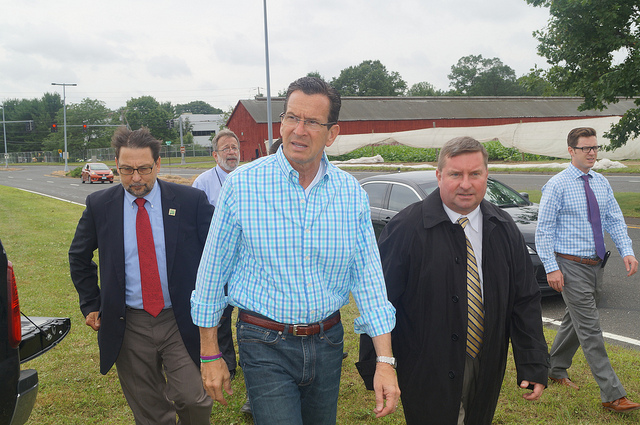
Connecticut lawmakers approved budget adjustments shortly after 1 a.m. this morning, the last day of the state’s fiscal year. After passing a budget on June 3rd with large tax hikes that caused many businesses to reconsider their operations in Connecticut, lawmakers in Hartford were shamed into making the changes that they sent to Gov. Malloy last night. The $1.5 billion tax increase that Gov. Malloy and Democratic legislators work to trim over the last several weeks includes an increase in the top income tax rate and the adoption of a unitary corporate tax system that will reduce the job-creating capacity of some of the state’s largest employers.
The tripling of the sales tax on computers and data processing that was in the budget passed four weeks ago was removed from the revised plan that awaits Gov. Malloy’s signature. However, over a billion dollars in higher taxes remain in the final deal, including higher income taxes for individuals, families, and employers across Connecticut.
Connecticut became the most recent state to institute an income tax, which was signed into law by Gov. Lowell Weicker in 1991, and the state has since been a case study demonstrating how instituting and raising income taxes beget more spending and bigger government. In a Forbes column published yesterday, ATR’s Patrick Gleason highlights how, since the enactment of its income tax, the size of Connecticut state government has grown twice as fast as that of neighboring New Hampshire, one of nine states that does not levy an income tax:
“In 1991, Connecticut state spending was 8.4 percent of state GDP and New Hampshire state spending was 6.3 percent of the Granite State economy. From 1991 to 2013, the size of government in Connecticut grew by more than a third, more than double the growth of government in New Hampshire, where the size of government grew 15 percent during that same period. Demonstrating that once a tax is in place it tends to rise, Connecticut’s income tax was 4.5 percent when instituted. 24 years later, the state income tax tops out at 6.7 percent. The budget approved earlier this month would raise the top rate to 6.99 percent.”
The revised budget that Gov. Malloy is expected to sign raises the top marginal income tax rate paid by individuals, families, and small businesses from 6.7 to 6.99 percent. The final budget delays the unitary tax that will cause the bottom lines of many companies to take a hit, but that just gives business owners time to plan a move to a state with a friendly tax climate.
Despite the fact that he promised just nine months ago that “there will not be a tax increase” if reelected, Gov. Malloy is now about to go back on his word and sign into law a more than $1 billion tax increase. Connecticut already has the third highest state and local tax burden in the country, had over dozen state tax increases go into effect just four years ago, and has been hit with over 20 federal tax hikes under President Obama.
Morning Joe host Joe Scarborough was correct when he stated recently that for Connecticut residents, “it’s hard to imagine things could get any worse.”
